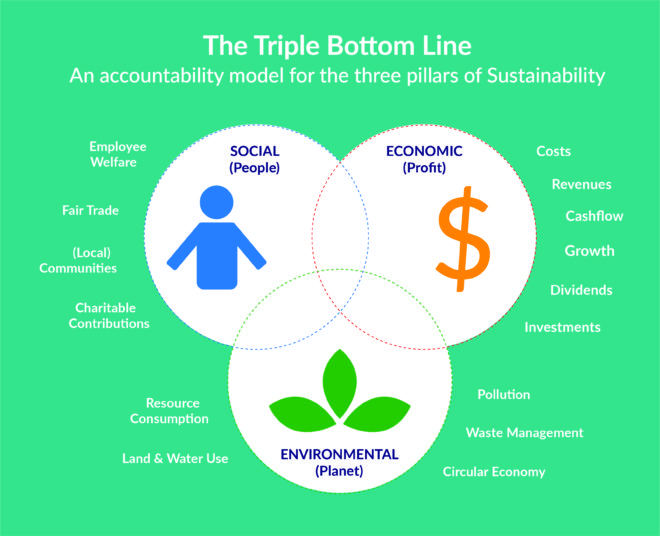I was fortunate to be among 13 participants from around the globe to join the second edition of the Water Revolution Foundation’s ‘Sustainability in Practice’ management course – and its first online. The participants and trainers met on Zoom for interactive 2½-hour sessions on two successive days in late April, with the group logging in from 12 countries around the globe.

Marieke Derks (bottom left) was among participants in the first online version of the Water Revolution Foundation’s ‘Sustainability in Practice’ management course
I felt I was in great company with participants from a variety of industry sectors including three yacht builders – Germany’s Abeking & Rasmussen, Dutch yard Feadship and Taiwan’s Horizon.
There were also superyacht designers and naval architects (Winch Design, 1Fluid), a marina (Barcelona 92), boat show organiser (Monaco Yacht Show), classification society (RINA), superyacht builders’ association (SYBAss) and media (Superyacht Services Guide, Superyacht Times and The Superyacht Group).
We were in good hands with trainers Nikos Avlonas, founder and President of the Center for Sustainability and Excellence (CSE), and George Markezinis, one of CSE’s leading consultants. CSE has trained over 6,000 employees working at Fortune 500 companies.
A bonus was the addition of Elisabetta Zerazion, a life cycle assessment (LCA) expert who recently became a scientific coordinator for the WRF and a contributor to YAT, the foundation’s LCA tool for the yachting industry.
MUCH MORE THAN GREEN
The fact that sustainability is much more than ‘green’ was both an eye opener and somewhat of a relief to many participants including myself. Sustainability means not only green practices but the effect of yachting in its widest sense on people and environment, including the jobs the industry creates.
Companies that have a balanced approach to the three pillars of sustainability – economic, social and environmental – are able to successfully maintain their business, although as Avlonas explained: “In the yachting industry, we are at the very start of the development relative to other industries.”

The three pillars of sustainability – economic, social and environmental
There are three main life cycle phases for assessing sustainable practices. The first is what happens when boats are being built. This covers the raw materials used and how they’re sourced, the building process, employment and safety at the yards and suppliers, construction waste management, and the design of yachts with end-of-life disassembly and re-use in mind.
The second phase is when yachts are being used. Think emissions and discharges from the yacht, waste management, noise pollution, marinas, maintenance, safety, employment and working conditions on board and in the service industry, conduct when visiting fragile ecosystems or local coastal communities, and using the boat to support research and sustainability projects.
The third is when boats are being disposed of. Where do materials end up, what can be recycled and reused, in which circumstances and at what cost? This is also where the circular economy concept comes into place. For instance, are we able to use materials for composites that, once used, can be broken down and used again?
LEADING SUSTAINABILITY IN YACHTING
The course taught us to identify our relations with stakeholders and assess how they impact the drive or need for sustainable practices. The three main stakeholders are regulatory bodies setting standards, yacht owners and users, and the industry delivering yachts and services.
Europe is ahead of other continents in terms of regulations. A directive from 2014 requires organisations with more than 500 employees to publish an annual sustainability report. The US is following suit.
Organisations like the UN and, in our industry, the International Maritime Organization (IMO) are setting environmental standards. Classification societies such as RINA, Veritas and Lloyd’s, and associations like SYBAss are involved with the IMO, but most companies in the yachting industry employ less than 500 staff and many are unfamiliar with sustainability reporting.
A few individuals, companies and organisations are at the forefront of sustainability in the yachting industry, such as the WRF, which was founded in 2018 by prominent superyacht builders aiming to develop a more sustainable, and future-proof, industry.

Slide showing the carbon management hierarchy model
But what is the influence of the yacht owners whose spending funds the industry? A key topic is the balance between the industry ‘pushing’ sustainable solutions, and yacht owners and charterers paying for those developments.
Clients and owners of superyachts are often at the forefront of our industry’s technical innovations, although builders generally state only a few clients insist on truly sustainable yachts.
Could Covid-19 change people’s thinking? SuperYacht Times’ weekly webinar on Covid-19’s effects on the yachting industry has included discussions on whether the virus will prompt a growing demand for sustainability and innovation.
Will families want to be together on their yachts for longer periods, travel to more remote destinations, be more in touch with the natural environment, and find socially responsible purposes for their yachts? If so, this could create different set-ups and designs for superyachts.
Covid-19 could also lead to new target groups of owners not previously active in yachting. Michael Breman, Sales Director at German shipyard Lurssen, said: “The industry has an active role to play by keeping our clients informed of the new possibilities and benefits of yachting.”
MANAGING A NEW COURSE
I was initially excited when I opened the Sustainability in Practice course materials, before feeling a bit overwhelmed with the terminology, abbreviations and sheer scope of the subject at hand.
Luckily, the Zoom-based course helped us to break down the subject of sustainability into manageable chunks of ‘material topics’. It also gave us a better understanding of how to start and maintain a process to improve sustainability in our own organisations, supported by some hands-on tools and insightful methods.

The first Sustainability in Practice course was at Metstrade
At the start of the course, participants discussed whether yachting will ever be truly ‘green’. It’s a non-essential leisure industry, although pleasure boating as a whole – from small ‘tinnies’ to megayachts – gives enormous pleasure to many, helps people enjoy, connect with and hopefully care for the marine environment, and is a considerable source of income across many sectors. This is where the full scope of sustainability comes into view.
As media, we’re advised to avoid ‘greenwashing’ in our desire to report on positive developments. Showing examples of sustainable practices in the yachting industry can help to develop awareness and inspire others, while constructive criticism could prompt builders and designers to reassess whether they’re doing enough.
Overall, the course provided an efficient, hands-on introduction to the topic. The online format worked surprisingly well, providing sufficient interaction between the group and even included small group assignments in separate Zoom Rooms. The knowledge and expertise from the trainers, and the input and perspectives from participants led to highly interesting insights and discussions.
The course might benefit from real examples of what has already been researched and achieved in our industry, but that would probably require one more session. However, I recommend the course to anyone who wants to start making a personal difference in sustainability, prepare their organisation to anticipate upcoming regulations, or simply help develop sustainable yachting.
For details on the Sustainability in Practice management course, click here
SUPERYACHT SERVICES GUIDE
Marieke Derks, Zara Tremlett and Bert van Muylwijk form the Superyacht Services Guide’s author team for Asia, the Indian Ocean and Australia. The SSG features personal recommendations from professional yacht Captains and crew for the best services used around the world, not only to run a superyacht but also to receive owners and guests, and to live and work on board as crew. The quick-search online directory is regularly updated, fast-tracking users to the most reliable, efficient and effective services available globally. Some Captains say the SSG is “by far the most-used publication on board”.
www.superyachtservicesguide.com
www.issuu.com/superyachtservicesguide
YACHT STYLE Issue 53: Catamarans Shine in ‘Multihulls Issue’ 2020





